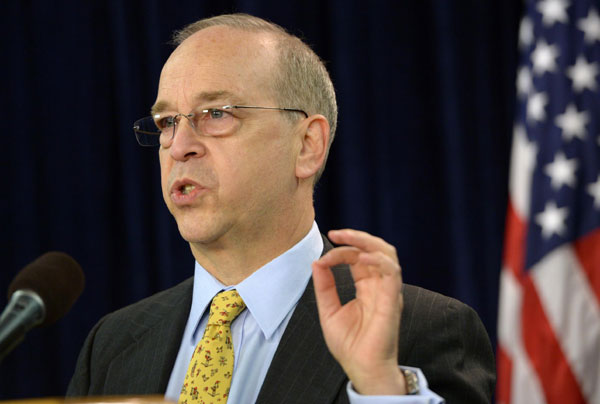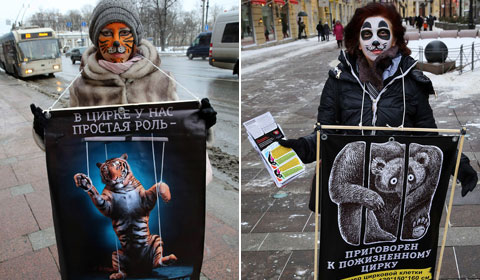US envoy pledges to promote "strategic cooperation" in E.Asia
Updated: 2014-02-05 11:53
(Xinhua)
|
|||||||||||
 |
|
Daniel Russel, assistant secretary of state for East Asian and Pacific affairs, speaks during a briefing at the Foreign Press Center in Washington D.C., the United States, Feb. 4, 2014. [Photo/Xinhua] |
WASHINGTON - The top US envoy for East Asia on Tuesday pledged continued efforts to promote "strategic cooperation" in the region, where tensions are running high over territorial disputes and Japan's attempt to whitewash its wartime history.
Daniel Russel, assistant secretary of state for East Asian and Pacific affairs who visited China, Japan and South Korea last month, told a press conference that Washington will continue to use its influence, diplomacy as well as "common sense" to push forward "in the direction of the kind of strategic cooperation that is going to make a big difference, a positive difference, in the lives of all the citizens" in East Asia.
Russel, who helped map out President Barack Obama's strategic rebalance to Asia-Pacific during his tenure at the White House, described "sustained and robust engagement" of the United States in the region as "an important stabilizing force," including its military presence, treaty alliances, "active participation" in multilateral organizations, and "strong" bilateral relations with all of the countries in the region.
He called on China and Japan, the world's second and third largest economies and major partners of the United States in the region, to "work together in their own strategic interests, in the best interest of their own citizens and certainly in the best interests of the region."
"No country benefits from tension," he said. "All countries have a common interest in cooperation between the world's second and third largest economies."
"The United States, along with each country in the region, has a vested interest in lowering tensions and improving diplomatic relations, and in close cooperation in Northeast Asia," he added, calling for "restraint, good judgment and diplomacy along with dialogue" in pursuing the benefits from the region that "we all want."
A series of moves by Japanese Prime Minister Shinzo Abe, including his late December visit to the Yasukuni Shrine, which honors Japan's war dead including 14 Class-A World War II criminals, and his attempt to downplay Japan's heinous war crimes during the World War II, like massacres, forced labor and sexual slavery, have added to regional tensions heightened over territorial disputes.
Related Stories
Diplomats discuss Asia-Pacific situation 2014-01-23 00:49
US envoys to 'quench fire' in East Asia 2014-01-20 10:36
US needs balanced Asia policy 2013-12-06 07:19
Biden's trip continues US engagement in Asia-Pacific 2013-12-02 10:23
Obama sets new date for Asia visit 2013-11-22 07:21
Today's Top News
US envoy pledges to promote co-op in E.Asia
US braces for rising economy, falling deficit
Obama to visit Jefferson's estate with French president
Non-manufacturing PMI drops in January
Austrian athletes receive threats
WeChat cash gifts popular
Navy starts West Pacific drill
Women driving e-shopping
Hot Topics
Lunar probe , China growth forecasts, Emission rules get tougher, China seen through 'colored lens', International board,
Editor's Picks

|

|

|

|

|

|





